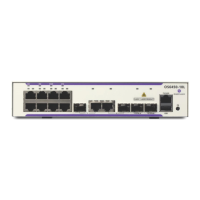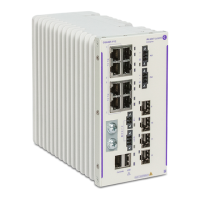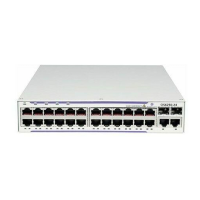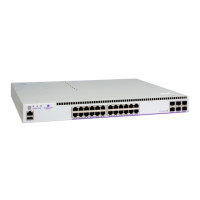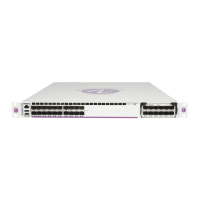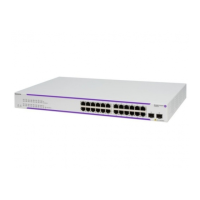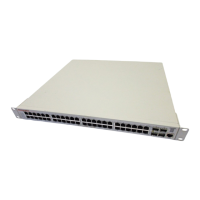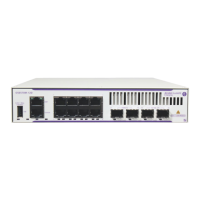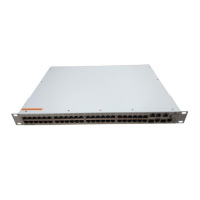OmniSwitch OS6860/OS6900/OS10K Troubleshooting Guide Part No.032996-00 Rev.A
AOS Release 7.X and 8.X January 2015
Alcatel-Lucent Page 48 of 148
8. Troubleshooting Link Aggregation
Special frames (Link Aggregation Control Protocol Data Unit or LACPDU) are used to interact with a remote
system and establish a Link Aggregation Group. However, some preliminary configuration is still needed, whereby
the user specifies attributes related to the aggregate group as well as attributes associated to the "possible"
participating links. These attributes are normally named "keys". Links will join aggregate groups by the time they
come up and exchange LACPDU frames with the peer. Depending on the "keys" associated to the links and to the
aggregate, the links may potentially join different groups. Note that a link can only join an aggregate when it is up
because LACPDU must be exchanged with a remote system.
For load balancing purposes, the traffic is distributed across all the ports of an aggregate group.
The load balancing is performed at the ingress side
The speed of the ports is not taken into consideration when traffic is distributed. In other words, the same
number of flows is distributed evenly on each port without reference to the line speed.
The maximum number of aggregates per system is 128 and the maximum number of aggregable ports is 256,
including LACP aggregate.
The maximum number of links per aggregate is 8, but an aggregate may be defined with a maximum of 8, 4 or
2 links). If no aggregate size is provided at configuration time, the default value is 8.
From the perspective of the LACP state machine, each port can have the following states:
Configured: the port has been created and keeps trying to select an aggregate on the NI where the port is
located
Selected: the port is selected in an aggregate based on the match of actor/partner parameters for the port
and the aggregate, each aggregate can have up to 8 ports selected
Reserved: the necessary resources to handle the port are available and the port is waiting for LACPDU
synchronization exchange to open the traffic
In case of linkagg port leave / join events verify LACP BPDU drop on software and hardware level, finally
compare number of LACP BPDUs received in hardware and software
Unknown Destination/Broadcast/Multicast traffic is load balanced on all the ports of the aggregate. This
provides better throughput for broadcast and multicast traffic.
LACP BPDUs are tunneled by default on UNI ports.
OS6860-> show ethernet-service uni-profile default-uni-profile
Profile Name Stp 802.1x 802.3ad 802.1ab MVRP AMAP
-------------------+--------+--------+---------+---------+--------+---------
default-uni-profile tunnel tunnel tunnel tunnel tunnel tunnel

